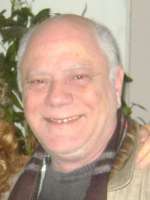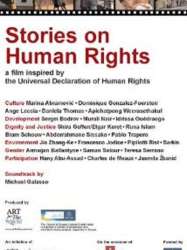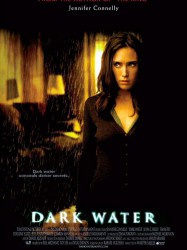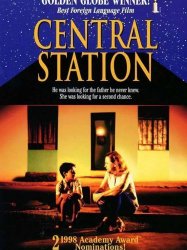High Art is a brésilien film of genre Drama directed by Walter Salles released in USA on 30 october 1991 with Peter Coyote
High Art (1991)

If you like this film, let us know!
- Infos
- Casting
- Technical infos
- Photos
- Videos
- Film quotes
- Characters
- Music
- Awards
A Grande Arte (in English, "The Great Art"; US title: Exposure), is a 1991 Brazilian movie directed by Walter Salles Jr. and starring Peter Coyote. Loosely based on the book A Grande Arte by Brazilian Rubem Fonseca, it is one of the first theatrical works of Salles Jr. The cast includes both Brazilian and international stars such as Coyote, Tchéky Karyo and Miguel Angel Fuentes.
This film is considered to mark the "revival" of the Brazilian movie industry, which was until that year in a deep production crisis.
Synopsis
Peter Mandrake (Coyote), an American photographer in Brazil, is preparing an in loco essay for his new book, about the "Train Surfers" (groups of boys who court danger "surfing" on the roof of the trains) in the city of Rio de Janeiro. A local call girl he is friends with is murdered, and when the police can make no progress Mandrake decides to investigate himself. Subsequently, two hired thugs break into his apartment demanding a disk, and, when he doesn't produce it because he can't do so, they rape his girlfriend and stab him, leaving him to die. Vowing revenge, Mandrake enlists the help of Hermes (Karyo), a professional knife fighter who owes Mandrake a debt, to teach him the art of knife fighting. The obsession this develops into causes Mandrake's girlfriend to leave him, wanting the whole thing to simply go away, but Mandrake refuses to let go.Actors

Peter Coyote
(Peter Mandrake)

Tchéky Karyo
(Hermes, the Knife master)

Amanda Pays
(Marie, the Archaeologist)

Raul Cortez
(Lima Prado)

Tonico Pereira
(Rafael)
Comments
Leave comment :
Suggestions of similar film to High Art
There are 183 films with the same actors, 12 films with the same director, 75010 with the same cinematographic genres (including 1258 with exactly the same 3 genres than High Art), to have finally 70 suggestions of similar films.If you liked High Art, you will probably like those similar films :

Foreign Land (1996)
, 1h40Directed by Walter Salles, Daniela Thomas
Origin Bresil
Genres Drama, Thriller, Romance
Themes Transport films, Road movies, Chase films
Actors Alexandre Borges, Laura Cardoso, Miguel Guilherme, Tchéky Karyo, Luís Melo, Zeka Laplaine
Rating73%






Stories on Human Rights (2008)
Directed by Pablo Trapero, Walter Salles, Idrissa Ouédraogo, Jia Zhang-ke (贾樟柯), Charles de Meaux, Abderrahmane Sissako, Apichatpong Weerasethakul, Jasmila Žbanić, Hany Abu-Assad, Sergueï Bodrov, Murali Nair, Daniela Thomas, Shira Geffen, Ange Leccia
Genres Drama, Comedy, Documentary, Musical, Romance
Actors Artur Smolyaninov
Rating53%





Vingt courts métrages sur les droits de l'homme.

Paris Je T'aime (2006)
, 1h55Directed by Wes Craven, Gérard Depardieu, Bruno Podalydès, Alfonso Cuarón, Sylvain Chomet, Alexander Payne, Olivier Assayas, Christopher Doyle, Gus Van Sant, Richard LaGravenese, Walter Salles, Vincenzo Natali, Nobuhiro Suwa, Isabel Coixet, Gurinder Chadha, Oliver Schmitz, Tom Tykwer, Daniela Thomas, Frédéric Auburtin
Origin France
Genres Drama, Comedy-drama, Anthology film, Romance
Themes Films about sexuality, LGBT-related films, Vampires in film, LGBT-related films, LGBT-related film
Actors Fanny Ardant, Juliette Binoche, Julie Bataille, Steve Buscemi, Bruno Podalydès, Sergio Castellitto
Rating71%





Génération AMOUR...Au fil des quartiers, des histoires d'amour passager, voilé, mimé, vampirisé, malmené ou révélé...Un Pari(s) moderne émouvant et drôle, un film plein de vie(s) sur le thème de l'Amour.

Dark Water (2005)
, 1h45Directed by Walter Salles
Origin USA
Genres Drama, Thriller, Fantastic, Horror
Themes Ghost films
Actors Jennifer Connelly, Tim Roth, John C. Reilly, Dougray Scott, Ariel Gade, Pete Postlethwaite
Rating56%





The film opens in 1974, as a young girl, Dahlia, stands outside after school in the rain, waiting for her mother.

Central Station (1998)
, 1h53Directed by Walter Salles
Origin Bresil
Genres Drama, Comedy-drama
Themes Transport films, Road movies
Actors Fernanda Montenegro, Matheus Nachtergaele, Marília Pêra, Othon Bastos, Otávio Augusto, Caio Junqueira
Rating80%





Dora is a retired schoolteacher who has become embittered. She works at Rio de Janeiro's Central Station, writing letters for illiterate customers, in order to make ends meet. She can be impatient with her customers and sometimes does not mail the letters she writes, putting them in a drawer or even tearing them up. Josué is a poor 9-year-old boy who has never met his father, but hopes to do so. His mother sends letters to his father through Dora, saying that she hopes to reunite with him soon, but when she is killed in a bus accident just outside the train station, the boy is left homeless. Dora takes him in and traffics him to a corrupt couple, but she is made to feel guilty by her neighbor and friend Irene and later steals him back.

The Motorcycle Diaries (2004)
, 2h6Directed by Walter Salles
Origin Argentine
Genres Drama, Biography
Themes Transport films, Films about automobiles, Motocyclette, Political films, Road movies
Actors Gael García Bernal, Rodrigo de la Serna, Mercedes Morán, Jean-Pierre Noher, Facundo Espinosa, Mía Maestro
Rating76%





"The Che of The Motorcycle Diaries is more akin to Jack Kerouac or Neal Cassady than Marx or Lenin."— Paul Webster, executive producer

Linha de Passe (2008)
, 1h48Directed by Walter Salles, Daniela Thomas
Origin Bresil
Genres Drama
Actors Sandra Corveloni
Rating70%





The film tells the story of four poverty-stricken half brothers with the same mother, Cleuza (Sandra Corveloni) but different fathers, who live in a suburban neighborhood in the periphery of São Paulo and have to fight to follow their dreams. Dario (Vinícius de Oliveira), seeks the opportunity of a better life with his soccer skills; Dênis (João Baldasserin) survives as a motorcycle courier; Dinho (José Geraldo Rodrigues) works in a filling station and helps at the local church and Reginaldo (Kaique Jesus Santos), although gifted as a soccer player dreams of becoming a bus driver. Cleuza, pregnant with her fifth child, works as a cleaner for a woman in a middle class area of São Paulo.

To Each His Own Cinema (2007)
, 1h40Directed by Claude Lelouch, Abbas Kiarostami, Amos Gitaï, Elia Suleiman, Nanni Moretti, Takeshi Kitano, Andreï Kontchalovski, Youssef Chahine, Roman Polanski, Wim Wenders, Chen Kaige, Raoul Ruiz, Olivier Assayas, Theo Angelopoulos, Michael Cimino, Wong Kar-wai, Manoel de Oliveira, Jane Campion, Alejandro González Iñárritu, David Lynch, Gus Van Sant, Atom Egoyan, Lars von Trier, Ken Loach, Walter Salles, David Cronenberg, Zhang Yimou, Bille August, Aki Kaurismäki, Hou Hsiao-hsien, Tsai Ming-liang, Raymond Depardon
Origin France
Genres Drama, Comedy
Actors Isabelle Adjani, Anouk Aimée, Antoine Chappey, David Cronenberg, Yosra El Lozy, Taraneh Allidousti
Rating66%





35 réalisateurs d'origines très variées (25 pays différents) ont tous mis en scène un court métrage de 3 minutes, sur le thème de la salle de cinéma. Le film en regroupe 33 puisque les frères Coen et les frères Dardenne travaillent ensemble. Celui de David Lynch ne faisait pas partie du film mais a été présenté en ouverture du festival.

Behind the Sun (2001)
, 1h45Directed by Walter Salles
Origin Bresil
Genres Drama, Comedy
Actors Rodrigo Santoro, Wagner Moura, Luiz Carlos Vasconcelos, Othon Bastos, Gero Camilo, Caio Junqueira
Rating75%





The year is 1910; the place, the badlands of Northeast Brazil. Twenty-year-old Tonho is the middle son of an impoverished farm family, the Breves. He is next in line to kill and then die in an ongoing blood feud with a neighboring clan, the Ferreiras. For generations, the two families have quarreled over land. Now they are locked into a series of tit-for-tat assassinations of their sons; an eye-for-an-eye, a tooth-for-a-tooth. Embedded in this choreography of death is a particular code of ethics: "Blood has the same volume for everyone. You have no right to take more blood than was taken from you." Life is suffused with a sense of futility and stoic despair.

Midnight (1998)
, 1h4Directed by Walter Salles, Daniela Thomas
Origin Bresil
Genres Drama
Actors Fernanda Torres, Luiz Carlos Vasconcelos, Matheus Nachtergaele, Tonico Pereira, Carlos Vereza
Rating67%





 Connection
Connection